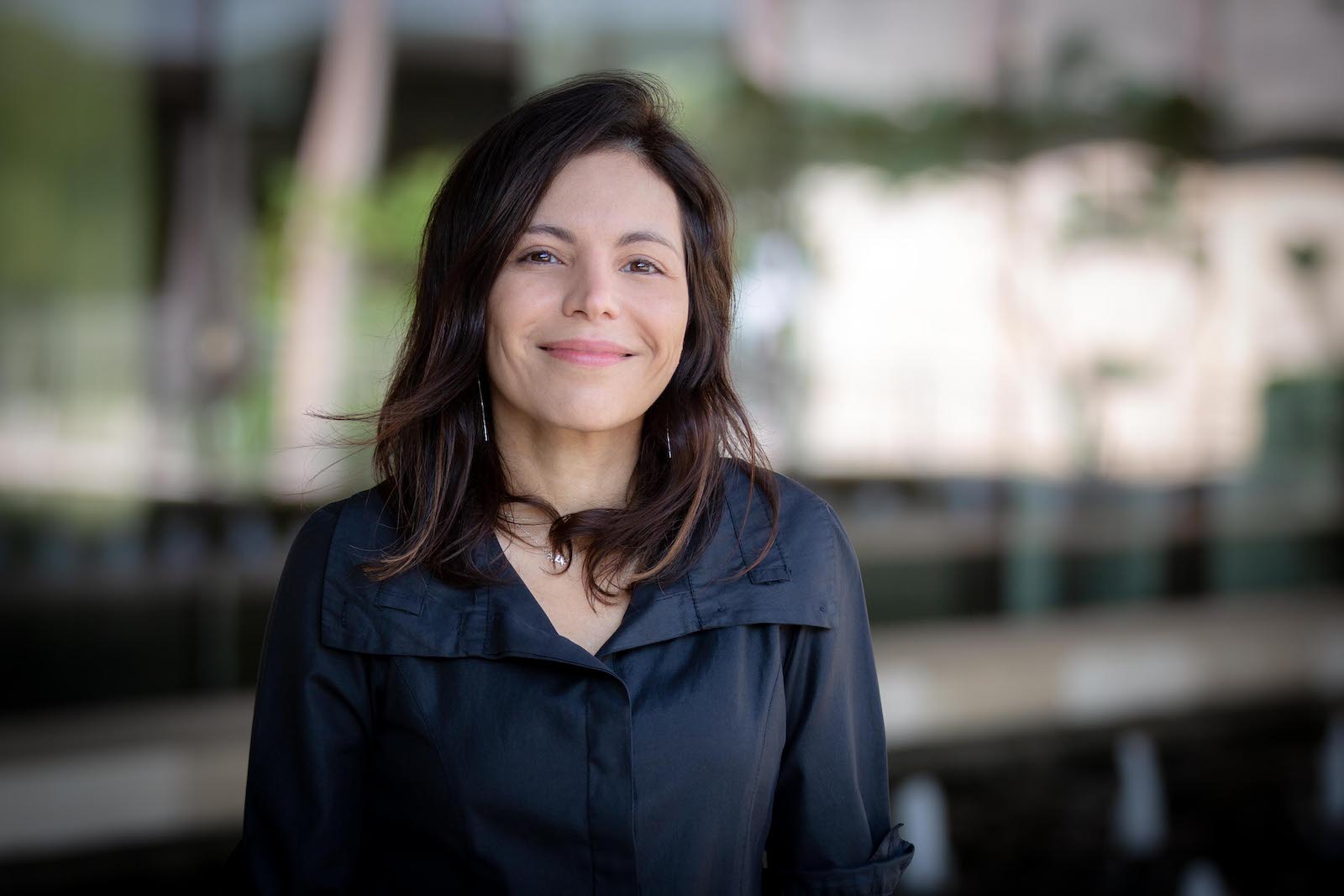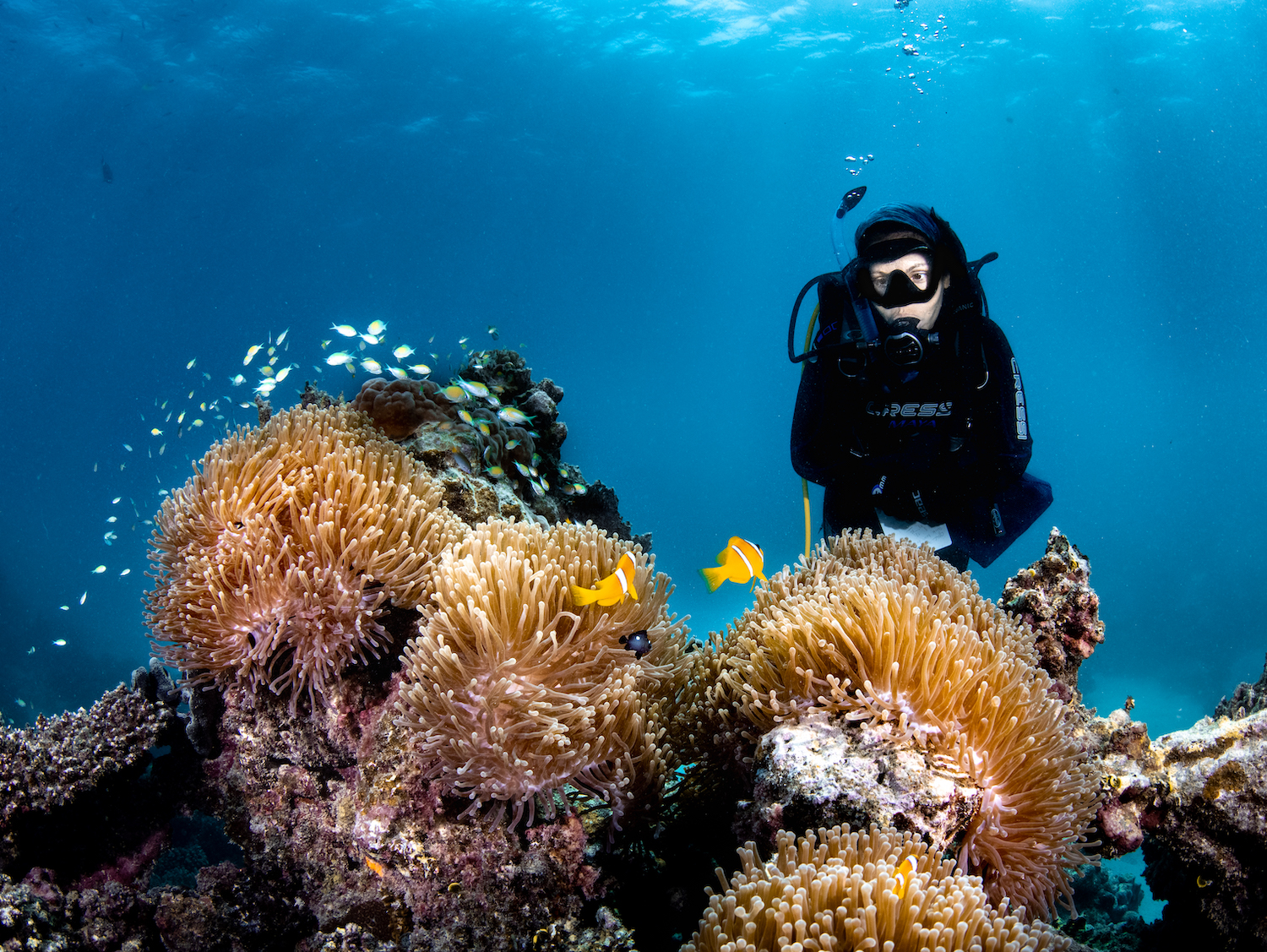KAUST professor wins Frontiers Science Prize

Professor Raquel Peixoto
Earth Day provides an opportunity for Saudi Arabia to highlight how the Kingdom is showing global leadership on marine conservation, in particular the fight to save corals. The protection of coral reefs is not just about preserving biodiversity, as they are home to approximately 30% of all marine life; economically, they contribute to trillions of dollars globally.
Exemplifying the heroes and heroines behind the science is KAUST Associate Professor Raquel Peixoto. Today, the Frontiers Planet Prize announced she is the 2024 National Champion for Saudi Arabia. This is a first for Saudi Arabia and any Arab nation. Peixoto earned the prize for her research on the use of probiotics to strengthen the resilience of coral reefs against climate change.
The timing of her prize is serendipitous Earlier this month, the National Oceanic and Atmospheric Association, considered the leading opinion on related science, announced that we are experiencing the fourth global coral bleaching event on record and the second in the past 10 years.
The Frontiers Planet Prize was founded to recognize research that addresses the 17 United Nations' Sustainability Development Goals as well as the nine planetary boundaries set by the Frontiers Planet Prize. This year marks the second annual group winners with no more than one coming from any given nation. Among the 23 winners, three will be declared international champions in June, and the institutes employing these champions will each receive 1 million Swiss francs for research purposes.
Dubbed the "Coral Warrior," Peixoto has established herself as a global leader in the use of probiotics for coral reef restoration. Probiotics describe the bacteria and other microbes that benefit the health of an organism, including humans. Originally a plant and soil microbiologist, an accidental scientific discovery during investigations on probiotics for agriculture led her to consider the potential of probiotics for marine life, including corals. However, her first proposals were doubted by the scientific community.
"Our idea was to create microbial cocktails specifically designed for corals, customized and isolated from corals. Initially, I was told this idea would never work," she said.
In the end, her research has effectively created a new scientific field, and several giga-projects in Saudi Arabia that have an environmental component, such as the protection of corals, mangroves, turtles and other marine life, are consulting Peixoto about her probiotics approach. Her research has also attracted the work of global pharmaceutical companies.
The RSRC Coral Probiotics Village, a laboratory in the Red Sea in which researchers can conduct long-term observations of probiotics treatments and other scientific investigations on coral reefs, is also the direct result of her research. As for her status among her peers, Peixoto is the founder and co-chair of the Beneficial Microorganisms for Corals Network, which aims to accelerate research on probiotics for marine organisms. The network provides frameworks, risk assessments and microbial-based solutions for governments and industry.

Peixoto conducting experiments in the Red Sea.
Peixoto attributes the serious dedication and investment Saudi Arabia has made to the success of her research. "KAUST is highly aligned with Saudi's ambitious RDIA sustainable goals. This is one of the reasons we have had such strong support to push the barriers and develop science-driven solutions to protect coral reefs," she said.
Peixoto notes the timing of the prize on Earth Day and the undergoing bleaching event is significant.
“Receiving this prize on Earth Day is significant. Corals are vanishing, and the impact will be profound. Our Red Sea research programs, including our probiotics strategy, have the potential to make an extraordinary impact on the environment and our lives,” she said.
Among the other initiatives for marine conservation at KAUST is the Coral Research and Development Accelerator Program (CORDAP), which was launched in 2020 at the G20 summit hosted by Saudi Arabia, and the KAUST Coral Restoration Initiative (KCRI), the world’s largest coral nursery.
"Professor Peixoto’s probiotics solutions provide exciting new opportunities to improve both the effectiveness and resilience of rapidly accelerating restoration activity around the world – solutions that we need now more than ever. We aim to demonstrate this potential by applying them to corals as part of the world’s largest restoration effort in the Red Sea," said KCRI Chief Scientist David Suggett.

